
There is no shortage of headlines on AI and its impact in every sector including healthcare, where topics range from the accuracy of chatbots and predictive analytics to the future of personalised medicine. But while hype is loud, what do doctors think? And more importantly, what do they want AI to solve?
This year, our So What? Research Survey of Australian Doctors asked 400+ Australian doctors what they really think about AI and where they believe it can make the biggest difference.
In this article, we share insights on:
Our survey shows that doctors are cautiously optimistic about AI, but they don't expect it to work miracles. They're searching for real-world support, especially with the daily things that take away their patient-focused time.
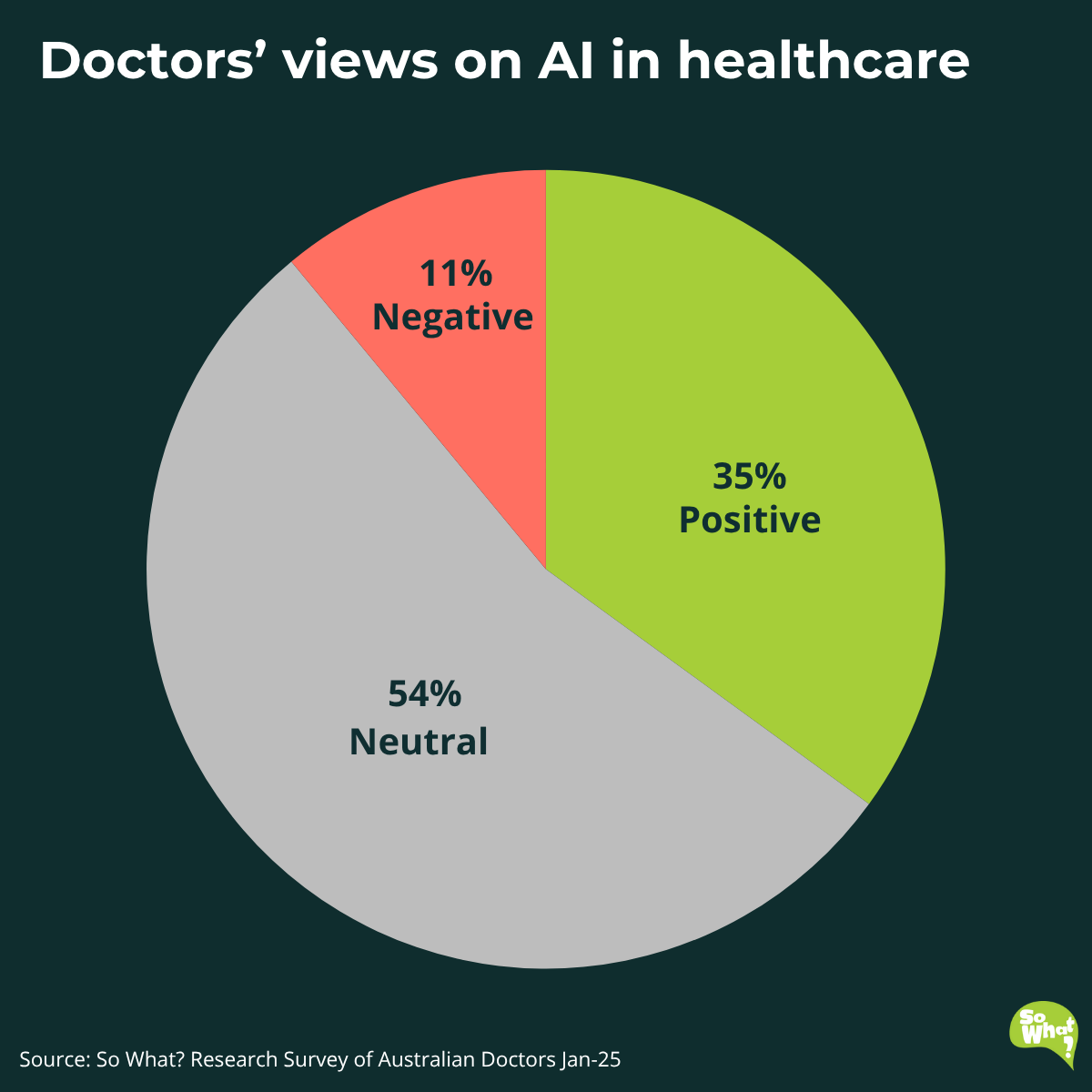
When asked about AI in healthcare more broadly:
So, most doctors aren’t anti-AI. They’re neutral, curious, and waiting for proof.
This matters for pharma marketers. The loudest voices online might be evangelists or critics, but most doctors are sitting in the middle. They’re open to AI but focused on real-world value, not big promises.
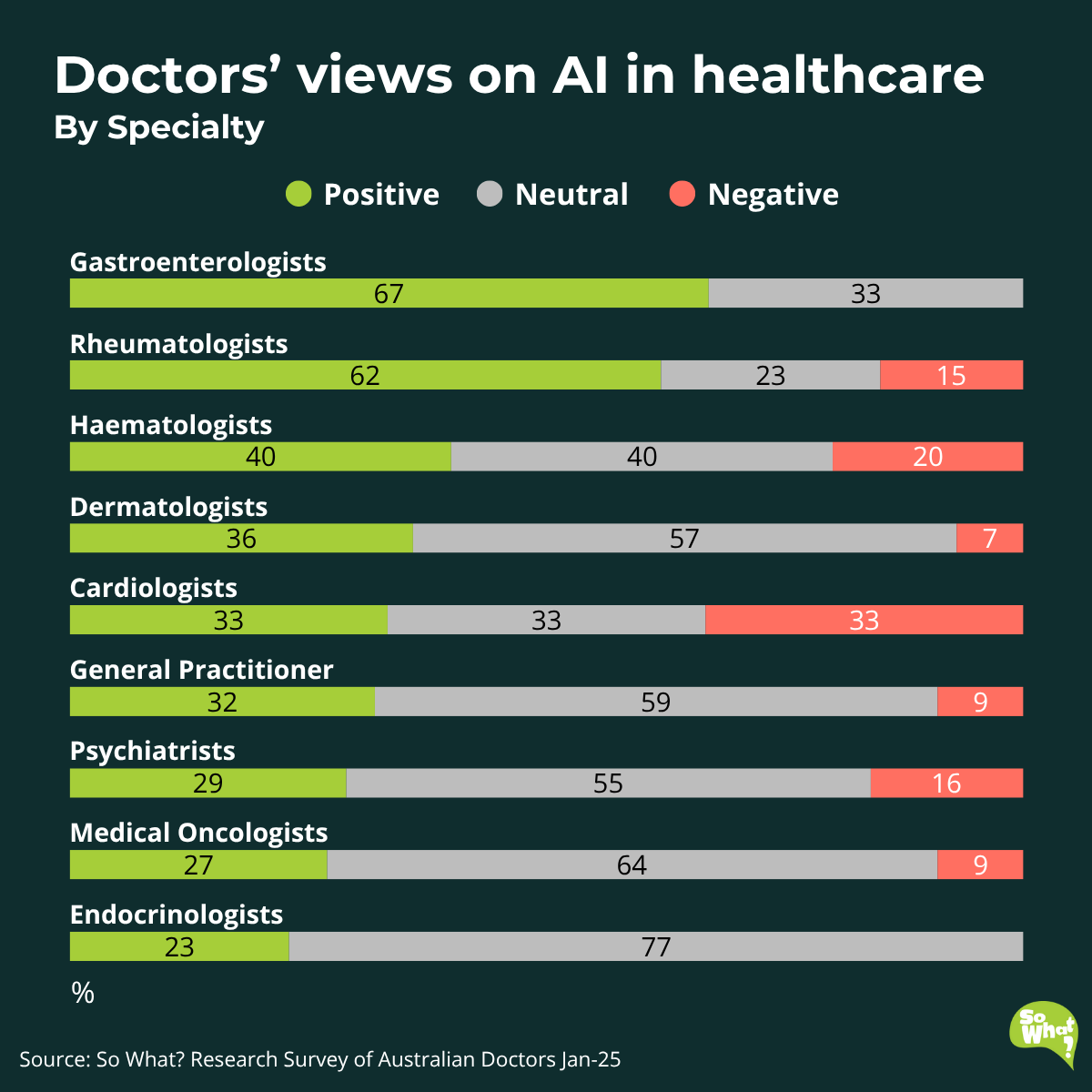
While most doctors are cautiously optimistic about AI, attitudes vary widely between specialties.
For example:
This shows the importance of tailoring your message. Whether you’re promoting a clinical decision support tool or a monitoring platform, the level of interest in AI depends heavily on the audience. Understanding each specialty’s mindset is critical.
Doctors are most excited about AI solving real, everyday problems. One use case stands out above the rest: 65% of doctors want AI to help reduce their admin burden.
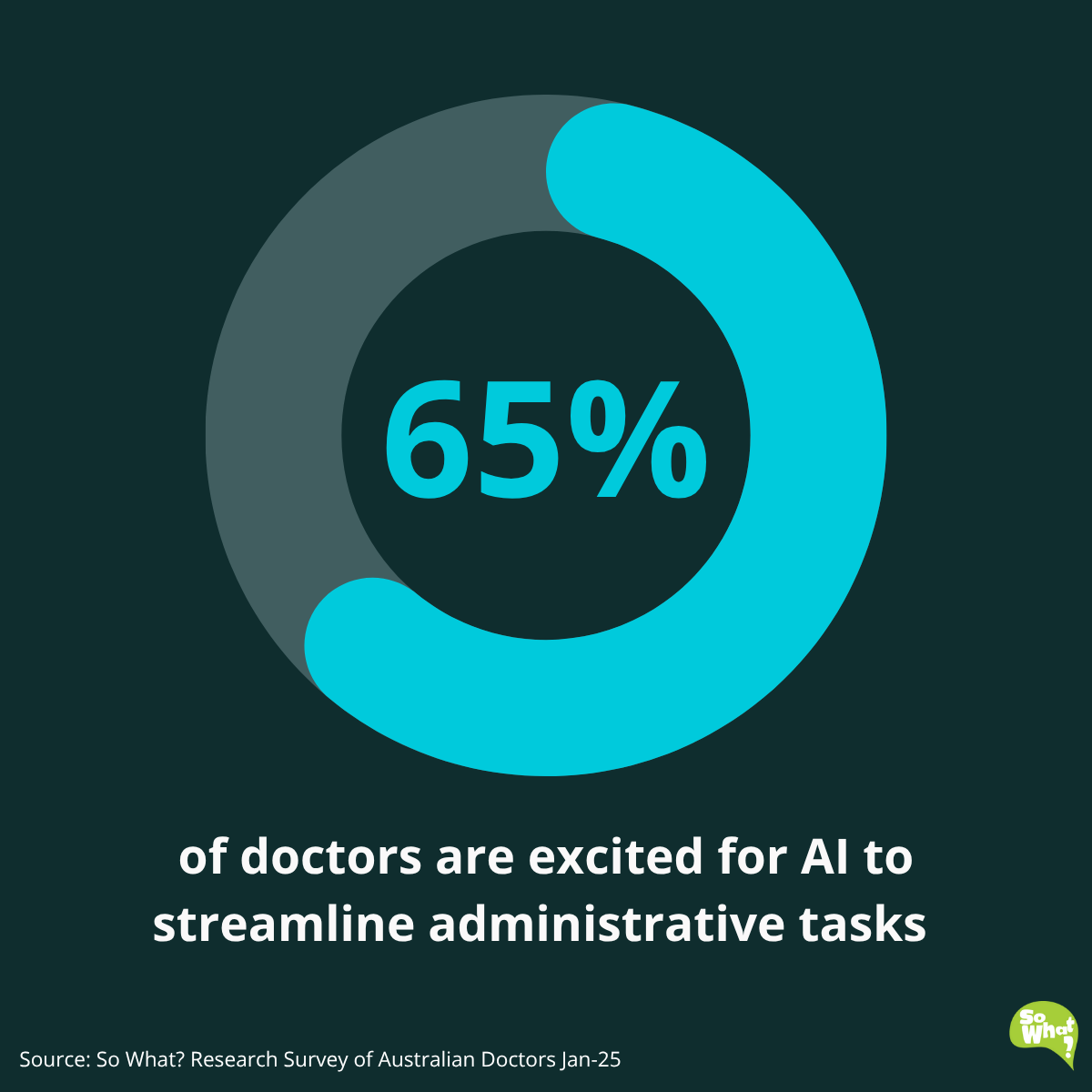
This isn't a surprise. In our research, including The Big Shift: Doctors' Pain Points in 2025, admin and paperwork top the list of frustrations. AI isn’t exciting because it’s new, it’s exciting because it offers relief.
Doctors are buried with paperwork, reporting requirements, and clinical bureaucracy. If AI can help with that, even a little bit, it will be very welcomed.
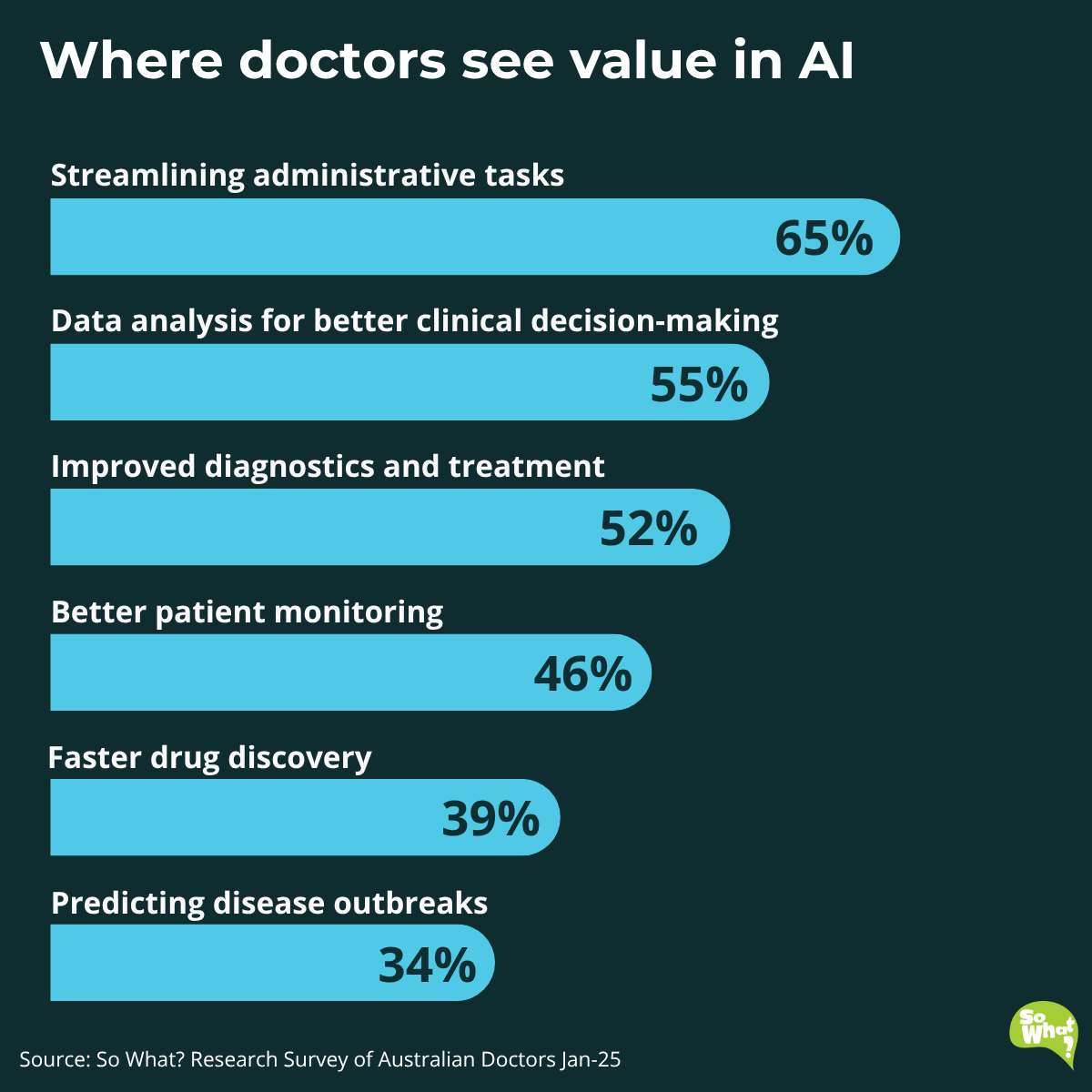
Admin support might top the list (65%), but it’s not the only area where doctors see value in AI. They’re also excited about tools that can strengthen diagnosis, decision-making, and personalised care.
Here’s what doctors say they’re most interested in:
These results make one thing clear:
Doctors Want Help, Not Hype
Doctors are most engaged when AI helps them do their core job more effectively like diagnosing, treating, and monitoring patients. Use cases that feel distant or overly futuristic, like outbreak modelling or R&D, are less of a priority right now.
If AI can help deliver faster, clearer and more confident decisions, it will be welcomed. But it must support clinical judgment, not replace it.
What should pharma brands and marketers take away from this? Here are three key insights to guide pharma AI messaging strategy and support for doctors:
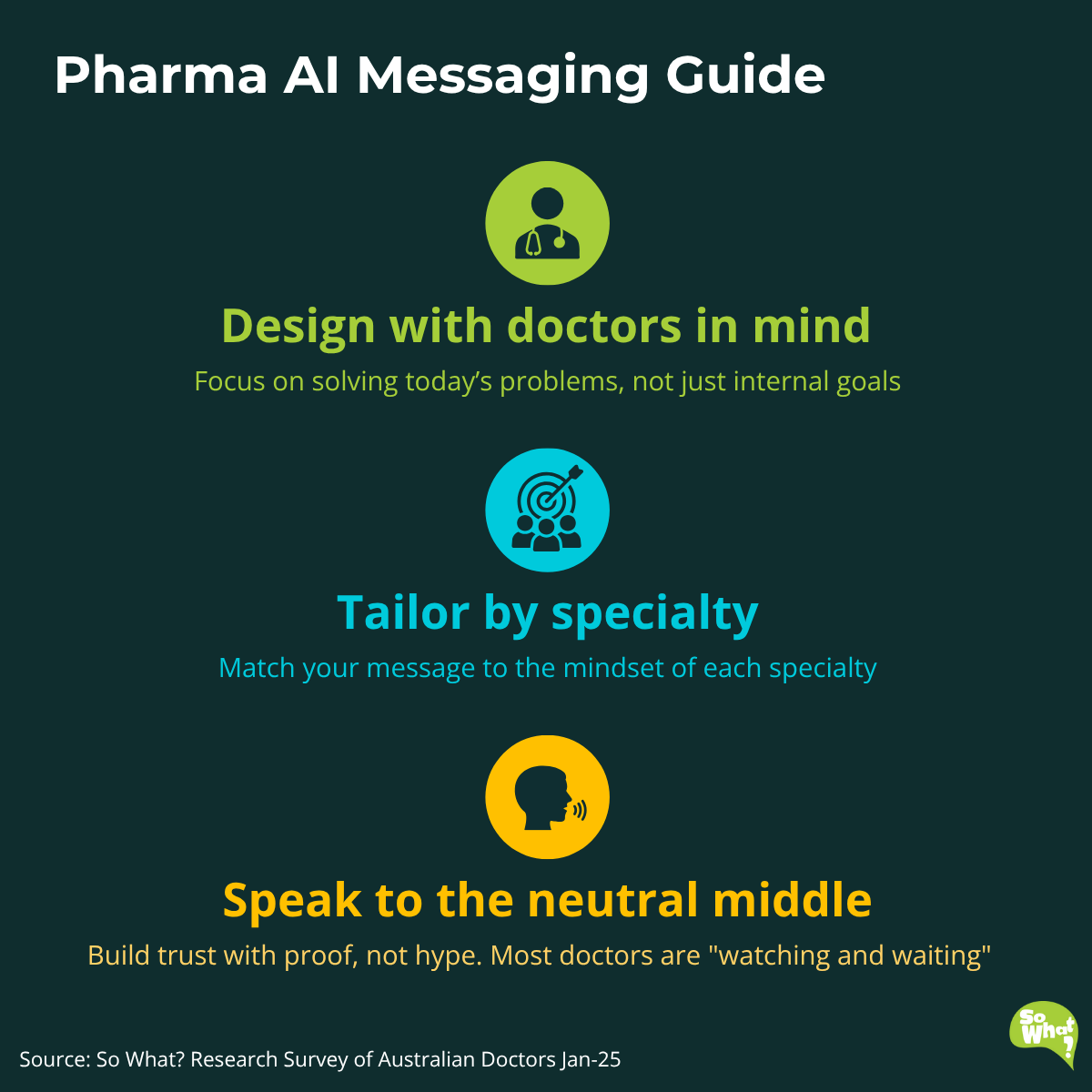
1. Adopt AI with doctors in mind
Doctors are most interested in AI that supports clinical care like diagnostics, decision-making, admin reduction, and personalised treatment. If your AI is built for internal efficiency or sales enablement, it may miss the mark. Design with doctors’ real-world needs in mind.
2. Tailor your message by specialty
Interest in AI varies by specialty. Gastroenterologists and rheumatologists are leaning in, while medical oncologists and endocrinologists are more cautious. Match your use case with the attitudes of the specialty you’re targeting. Don’t assume a one-size-fits-all narrative.
3. Address the neutrality, not just the enthusiasm
The loudest voices online may love or hate AI, but most doctors are in “watch and see” mode. They need information, transparency, and reassurance, not hype. Build trust by showing results, not just potential.
We help pharma brands uncover what matters most to healthcare professionals and craft messaging that cuts through.
Contact us today to explore your opportunity.